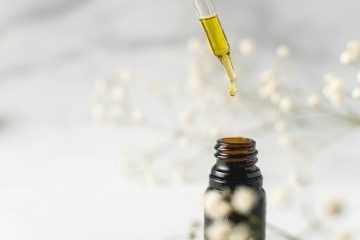CBD Delta 8 is a Cannabinoid acid with similar effects to delta-9 THC, a cannabinoid that is commonly used in cannabis. However, it can cause side effects. Below are some of the most common side effects of CBD Delta 8 and what you should do if you experience them.
What is CBD Delta 8?
CBD delta 8 is a chemical compound found in the cannabis plant. It is one of the many cannabinoids present in the plant and is similar to the more well-known cannabinoid delta-9-tetrahydrocannabinol (THC). Like THC, CBD delta 8 can interact with the body’s endocannabinoid system and may produce a range of effects, including changes in mood, perception, and cognition.
However, unlike THC, CBD delta 8 is less psychoactive and is not believed to produce the characteristic “high” associated with THC. Some people may find that CBD delta 8 produces a more subtle and relaxing effect compared to THC.
CBD delta 8 is often used for medicinal purposes and may be used to treat a range of medical conditions, including chronic pain, anxiety, and epilepsy. It is also used recreationally and may be used to produce a more relaxing and mellow high compared to THC.
It’s worth noting that the legal status of CBD delta 8 and other cannabis-derived products varies by location, and it is important to be aware of and comply with all relevant laws and regulations. In some locations, CBD is legal and widely available, while in others it is regulated as a controlled substance or illegal. It’s always a good idea to speak with a healthcare professional before using any new supplement or medication.
Cannabinoid acid
Cannabinoid acid is a natural constituent of the Cannabis sativa plant. It is a key determinant of its inhibition of COX-2 activity. This is a key step in the efficient production of cannabidiol.
To study the biosynthesis of cannabinoid acid and other cannabinoids, we used yeast as the in vivo host. We developed a strain overproducing geranyl pyrophosphate and engineered a mevalonate pathway to increase the production of isoprenoids.
Cannabinoid acid was synthesized through a reaction between geranyl pyrophosphate, olivetolic acid, and fatty acids. It is the first biogenetic phytocannabinoid. The methylation of the carboxylic acid moiety of CBDA was found to significantly affect its selectivity for COX-2.
The thermal decarboxylation of cannabinoid acid is an important step in the production of cannabidiol. This reaction produces the neutral cannabinoid 9-tetrahydrocannabinol. Decarboxylation of cannabinoid acids can also produce isomers. These isomers are usually ionized at a physiological pH. However, decarboxylation reactions can be accelerated by matrix components.
The use of LC-MS/MS techniques in the analysis of cannabinoid extracts was widely applied. ESI MS/MS and GC/MS spectral data were used to identify the acidic and neutral cannabinoids. In addition to being able to provide reproducible spectral fragment patterns, these techniques have high sensitivity and selectivity.
A total of twenty samples were collected for study. The Arrhenius plots of the decarboxylation of CBDA are shown in Figure 5. The reaction times ranged from five to sixty minutes. During this period, the concentration of the CBDA in the extract was monitored. After the extract was dried, the residue was re-dissolved in eluent.
The decarboxylation efficiency of cannabinoid acid was higher at temperatures above 100 degC, which may be due to the lower boiling point of CBD in the closed reaction vial. Unlike THCA, decarboxylation of CBDA proceeded at a slower rate. As the temperature was increased, the formation yield of CBDA was also improved.
Besides, the results of the decarboxylation showed that the hydroxyl groups of the cannabinoid were free from the ring formation with the terpene moiety. Therefore, these cannabinoid acids have low peak intensity and poor chromatographic properties.
Similarity to delta-9 THC
Delta-8 and delta-9 are two of the most common tetrahydrocannabinols (THC). These compounds are found in the cannabis plant and are responsible for its “high.” They are also found in hemp plants.
Although they have the same chemical formula, they have a few differences. For one thing, delta-8 and delta-9 have different places on their carbon atoms where the double bond is located.
The location of the double bond is important because it affects the way THC behaves. If it is in a location that is unfavorable for the receptors, then the substance will act in a less efficient manner.
While delta-8 and delta-9 are not as powerful as the full agonist of the CB1 receptors, they still have some of the same effects. In fact, they are considered to be partial agonists.
As such, they are safe to use in most people. However, some people may find that they do not like the effects. This is why the FDA is monitoring the market for misinformation and poor practices.
Many of the delta-8 products on the market contain potentially harmful chemicals. It is a good idea to keep these products away from children and pets.
Besides, the benefits of Delta-8 and delta-9 aren’t the same as the ones of their cousin CBD. There is no proof that CBD can replace Delta-9 THC.
The main reason to consider using delta-8 is that it offers a milder high, as opposed to the high produced by delta-9. Another benefit of delta-8 is that it is derived from a hemp plant, so it can be safely consumed.
Despite its relative lack of popularity, delta-8 THC is more effective than its cousin delta-9. It may be the ideal choice for patients who wish to experience the therapeutic benefits of delta-9, but don’t want to get high.
Using delta-8 THC can help in various ways, ranging from pain management to supporting relaxation. But, the jury is still out on whether the effects are any better than those of delta-9.
In the end, though, it is up to you to decide which is the right choice for you. A small amount of delta-8 THC can be helpful for most people. But don’t forget to research your options before buying.
Side effects
Delta-8 tetrahydrocannabinol is a psychoactive compound naturally found in the Cannabis sativa plant. It is a bit different from delta-9 THC, but both compounds have some very similar effects.
The potential side effects of delta-8 are minor and short-lived, but some people may find them uncomfortable. A heavy dosage can cause a variety of side effects, such as nausea, short-term memory loss, and paranoia.
There are two major types of delta-8 products – tinctures and gummies. Gummies are a tasty, low-cost way to experience the benefits of delta-8. However, they are not instantly effective, and they only last for a few hours depending on your dose.
Doses vary from product to product. When deciding on which product to buy, read the package to see if the manufacturer provides dosing instructions. You can avoid any adverse side effects by taking the proper amount of delta 8 for your body type.
Some people will experience unwanted effects when taking too much delta 8. In some cases, this can be due to a combination of the drug’s interaction with other drugs. Other side effects can include a positive urinalysis, dry mouth, drowsiness, and uncoordinated movements.
Although delta-8 can be beneficial to the human body, the risks of taking too much of it are not worth the benefits. In some cases, the drug may even impair the brain’s ability to think clearly.
Delta 8’s side effects are usually only minor, but you should be aware of them before you start using the drug. You should also avoid driving or operating heavy machinery after you’ve taken the medication.
Delta-8 is a new addition to the marijuana scene. Some states have already banned the drug, or are considering it.
However, the FDA has received reports of adverse events associated with delta-8-containing products. According to the FDA, about 40% of the adverse event reports involved unintentional exposure to the drug.
The CDC has issued a health advisory statement about delta-8 tetrahydrocannabinol. While the CDC does not recommend any use of the drug, they did mention a number of factors that may play a role in its effects.
Legality
Delta-8 is a cannabinoid, a substance found in marijuana, that is often added to vape cartridges. Its use has a wide range of effects, including euphoria and relaxation. In some cases, it can also help people who suffer from chronic pain feel more energetic and less dry. But there are concerns about its safety.
Several studies have shown that delta-8 products contain heavy metals, other cannabinoids, and other harmful byproducts from the manufacturing process. Experts say that there is no way to make sure that delta-8 is safe.
Some experts believe that the only solution is to regulate delta-8. However, federal drug laws might have a different view. For example, the Drug Enforcement Agency recently updated its scheduling regulations to address the 2018 Farm Bill. This change may allow other types of THC to become legal.
Although there is no official statement on the legality of delta-8, several states have allowed recreational or medical use of delta-8. Pennsylvania, Arkansas, and Missouri have legalized the sale of delta-8 THC products. They are sold in both retail and online stores.
Alaska, Iowa, and Illinois have not explicitly prohibited the possession, sale, or production of delta-8. However, these states’ laws are confusing.
The Alabama health department has not explicitly barred the use or sale of delta-8, but lawmakers in that state have tried to ban it in 2021.
Mississippi and Texas have laws on the books that ban the sale of cannabis, including delta-8. Colorado and Connecticut have relaxed their laws to include hemp plants.
Wisconsin and Illinois have legalized the sale of delta-8. There is a booming market for delta-8 in Wisconsin. Products are available through licensed hybrid retailers, but law enforcement has not been cracking down on unlicensed retailers.
Most states have not banned delta-8, but there is growing concern over its safety. Many users of delta-8 report relief from chronic pain and a more relaxed feeling. Those who suffer from heart conditions, blood thinners, or other ailments should not consume delta-8.
In addition, there are concerns over the unregulated potency of delta-8. Because of its unknown safety, most experts advise against using it.


